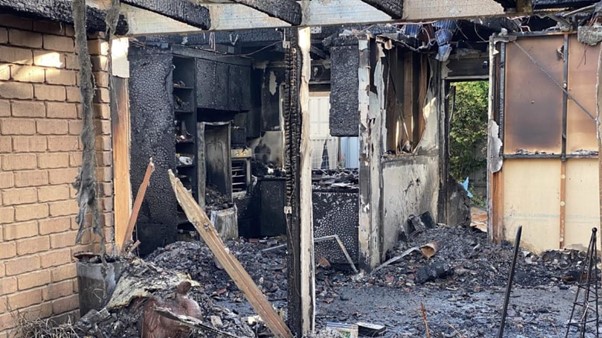
Raising Awareness: The Risks with Lithium-ion Battery Failure
It was heartbreaking to read about the fire in an Adelaide retirement village last week where an 83-year old man was found dead and a woman, 81, taken to hospital.
Late, reports indicated the likely cause of the fire was a mobility scooter battery left charging overnight.
Mobility scooters are a part of retirement villages all over the country. Many of them are plugged in right now, charging, so that they are ready to assist their owner move about the community.
A common feature of these mobility scooters is their light-weight lithium-ion battery. Lithium-ion batteries are widely used since they can store a large amount of energy in a relatively small area. They are also susceptible to causing events like the one seen in Adeliade the other week with state fire departments reporting more than 450 fires caused by lithium-ion batteries in the past 18 months.

What causes lithium-ion batteries to fail?
Overheating is one of the main causes of lithium-ion battery failures, although physical damage to the battery can also lead to problems.
Excessive heat — for example from using a faulty charger and overcharging the battery, or due to a short circuit — can damage the battery cell internally and cause it to fail.
The major issue with lithium-ion batteries overheating is a phenomenon known as thermal runaway.
In this process, the excessive heat promotes the chemical reaction that makes the battery work, thus creating even more heat and ever more chemical reactions in a disastrous spiral. Physical damage to lithium-ion battery cells can allow the electrolyte inside to leak, which is another potential hazard risk.
How can people mitigate the problems with lithium-ion batteries?
Correct usage and storage of lithium-ion batteries is extremely important.
Batteries should not be exposed to high external temperatures, for example from being left in direct sunlight for long periods of time.
Overcharging is another fundamental issue as this can create excessive heat inside the battery cell.
Therefore, it is important to always use a reputable brand-name charger, rather than a cheap generic version that may be available online.
Good quality chargers, designed specifically for the battery you are using, control the amount of charge going into the cell and will cut off when it is fully charged to ensure the system does not over-heat.
Be very wary if a lithium-ion battery sustains any physical damage, such as being dropped or pierced by an object, as this can lead to leakage and potential problems.
In workplace settings, safe battery storage can be crucial so that in the event of unwanted failure, the resulting fire can be more easily contained and controlled and does not spread – which can quickly cause catastrophic consequences.
It is not advisable to purchase lithium-ion batteries second-hand, or online from unknown and potentially unregulated vendors.
What can we do?
Bring awareness. Take a commonsense approach and educate residents on the risks. There are a range of useful fact sheets and links contained in this article which can be shared easily with staff and residents.
For further information
For those interested in further reading on this subject, the ACCC released a report in October 2023 titled ‘Lithium-ion batteries and consumer product safety’.
Additional information about lithium-ion battery safety can be found by contacting your state fire department.



